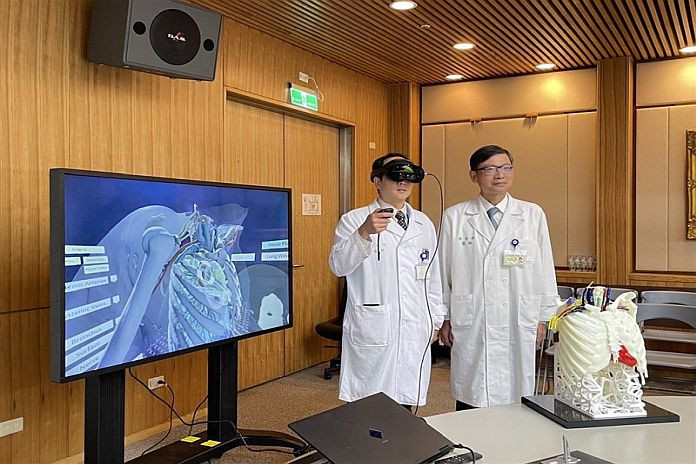By interns Wu Chen-jun and Li Shu-yu
TAIPEI, Taiwan, (CNA) – A team of Taiwan surgeons recently used 3D simulated imaging technology in preparation for a tumor resection surgery, the first time the technology was ever successfully used in the nation, National Taiwan University Hospital (NTUH) announced Wednesday.
In July, a 48-year-old man with a complex 10-centimeter-long carcinoid tumor near his heart underwent a tumor resection surgery with the assistance of 3D simulated imaging, Chen Jin-shing (陳晉興), director of the department of surgery at NTUH, said at a press event.
The surgical team, made up of experts from the departments of surgery and the department of cardiovascular surgery, completed the procedure with remarkable precision, Chen added.
3D simulated imaging technology is an evolution of 3D printing with virtual reality that converts computed tomography (CT) scans and magnetic resonance imaging (MRI) undertaken by a patient into a visual representation of his or her condition and anatomical structures. This provides medical teams with a concrete preview prior to surgery which boosts surgical precision, the hospital explained.
In the past, NTUH used 3D printing technology, which required a significant amount of time and resources to create physical models for pre-op planning. However, the integration of 3D models and virtual reality has revolutionized the process, making it more accessible and efficient, Chen said.
This achievement has not only set a benchmark for 3D simulated imaging but also contributed to ongoing clinical education and research, he added.
Chen also emphasized the potential of the technology for interdisciplinary operations, particularly in challenging cases where surgical accuracy is crucial.
As the technology becomes more widely available and commercialized, the cost of such operations is expected to decrease significantly, making advanced medical care more accessible to patients in need, according to Hong Yi-ping (洪一平), a professor at the College of Electrical Engineering and Computer Science at National Taiwan University.





